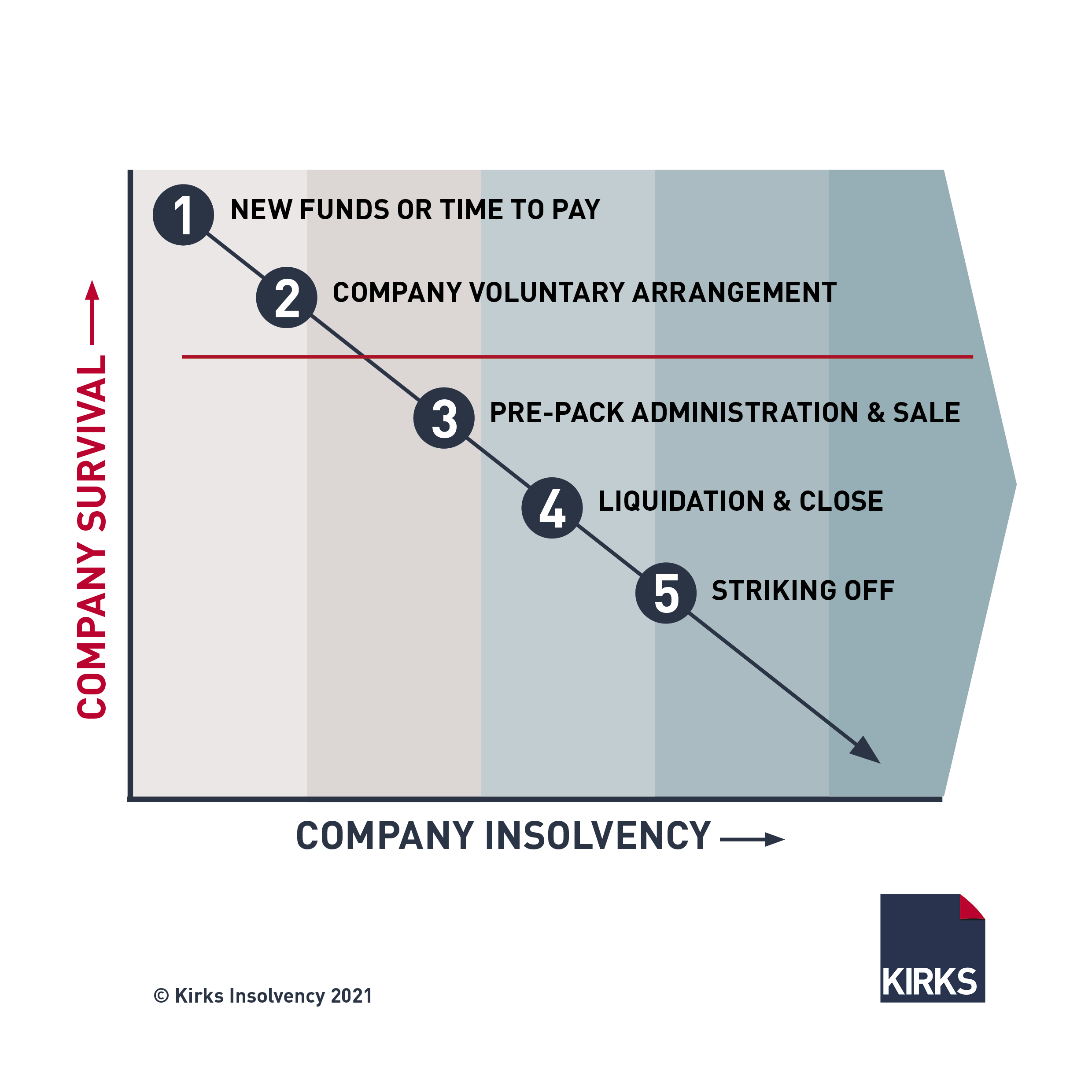Some Known Facts About Insolvency Practitioner.
Some Known Facts About Insolvency Practitioner.
Blog Article
Insolvency Practitioner for Dummies
Table of ContentsWhat Does Insolvency Practitioner Do?Insolvency Practitioner Things To Know Before You Get ThisNot known Factual Statements About Insolvency Practitioner Insolvency Practitioner Can Be Fun For AnyoneInsolvency Practitioner Can Be Fun For AnyoneOur Insolvency Practitioner IdeasWhat Does Insolvency Practitioner Mean?
Insolvency is when liabilities are higher than the worth of the business, or when a debtor can not pay the financial obligations they owe. A company can come to be insolvent due to a number of scenarios that lead to inadequate capital. When encountered with insolvency, a company or person can get in touch with creditors straight and restructure debts to pay them off.Service proprietors might call lenders straight and restructure financial obligations right into more workable installments. Financial institutions are usually amenable to this approach because they desire to be settled and prevent losses, also if the repayment is on a delayed routine.
The 7-Minute Rule for Insolvency Practitioner
The owner creates a proposal outlining exactly how the financial debt may be reorganized using expense decreases or various other strategies for assistance. The proposition reveals financial institutions how the organization might generate adequate cash money flow for lucrative procedures while paying its financial obligations. Generally, a forgiven financial obligation might be thought about income by the Internal Revenue Service (IRS).

Some Known Factual Statements About Insolvency Practitioner
Business may wind up paying large quantities of cash in damages and be overcome operations. When procedures stop, so does the company's earnings. Absence of income results in accounts payable and creditors asking for cash owed to them. Some companies end up being insolvent since their items or solutions do not develop to fit consumers' altering demands.
Costs surpass incomes and expenses remain unsettled. Cash-flow bankruptcy occurs when a firm has the properties to cover their debts yet they are in the wrong type, such as real estate instead of fluid funds. Balance-sheet bankruptcy, on the other hand, shows an absence of properties in any type of kind to cover financial obligations.
The internal revenue service states that a person is financially troubled when the overall responsibilities go beyond total possessions. A bankruptcy, on the various other hand, is a real court order that depicts just how an insolvent individual or service will certainly pay off their lenders, or just how they will offer their assets in order to make the payments.
Insolvency Practitioner - An Overview
Recognizing the aspects that can lead site to bankruptcy, such as overspending, can aid you stop bankruptcy and its repercussions.
The Single Strategy To Use For Insolvency Practitioner
It is well understood that supervisors and police officers of corporations (and managers of minimal liability business) owe fiduciary tasks to their companies and their shareholders (or participants). These fiduciary responsibilities are defined by state laws and, though there are variations from one state to another, they usually consist of a task of commitment and a task of care.
The responsibility of care calls for supervisors and police officers to exercise diligence, to make enlightened decisions, and to act in good faith so that their activities remain in the best rate of interest of the firm. Beyond the scope of this discussion, some states allow these obligations to be restricted either by so keeping in mind in the business documents or complying with other demands.
The Ultimate Guide To Insolvency Practitioner
A lot of states specify insolvency in two methods( 1) when a company's responsibilities end up being above the amount of its possessions or (2) when the company comes to be incapable to pay its financial obligations as they come to be dueand welcome both interpretations (Insolvency Practitioner). The shift in obligations happens due to the fact that when a company is insolvent, there is no worth in the business beyond that owed to the company's financial institutions so that the equity owners no more have a financial stake in the company
Beware regarding giving investors advantageous therapy at the expenditure of creditors (e.g., accrediting and moneying a reward or a supply redemption). Beware regarding favoritism between courses of shareholders. Clear up initiatives to find out all the realities before taking a details program of action; directors should truly think that any decisions made remain in the very best rate of interests of the firm in its entirety (i.e., choices will be assessed in hindsight due to the effect of such activities on the corporation).
In any kind of personal bankruptcy or insolvency proceeding, payments made to certain creditors at the cost of various other creditors can be clawed back, particularly if there is some link between the business and the lender. Take into consideration proposing at an annual shareholder conference (or any kind of other conference of stockholders) a resolution affirming that all prior business decisions and actions taken by the directors and officers of the corporation were taken in excellent confidence after an exercise of reasonable care.
Insolvency Practitioner Fundamentals Explained
Totally disclose any kind of personal or click over here organization partnerships with events on the other side of purchases entailing the company to prevent the appearance of a problem of interest. In examining potential fund raising transactions or a sale of possessions of the distressed firm, be aware that these transactions may be scrutinized later taking into official site account any kind of succeeding development of supervisors' fiduciary duties to consist of financial institutions.
Report this page